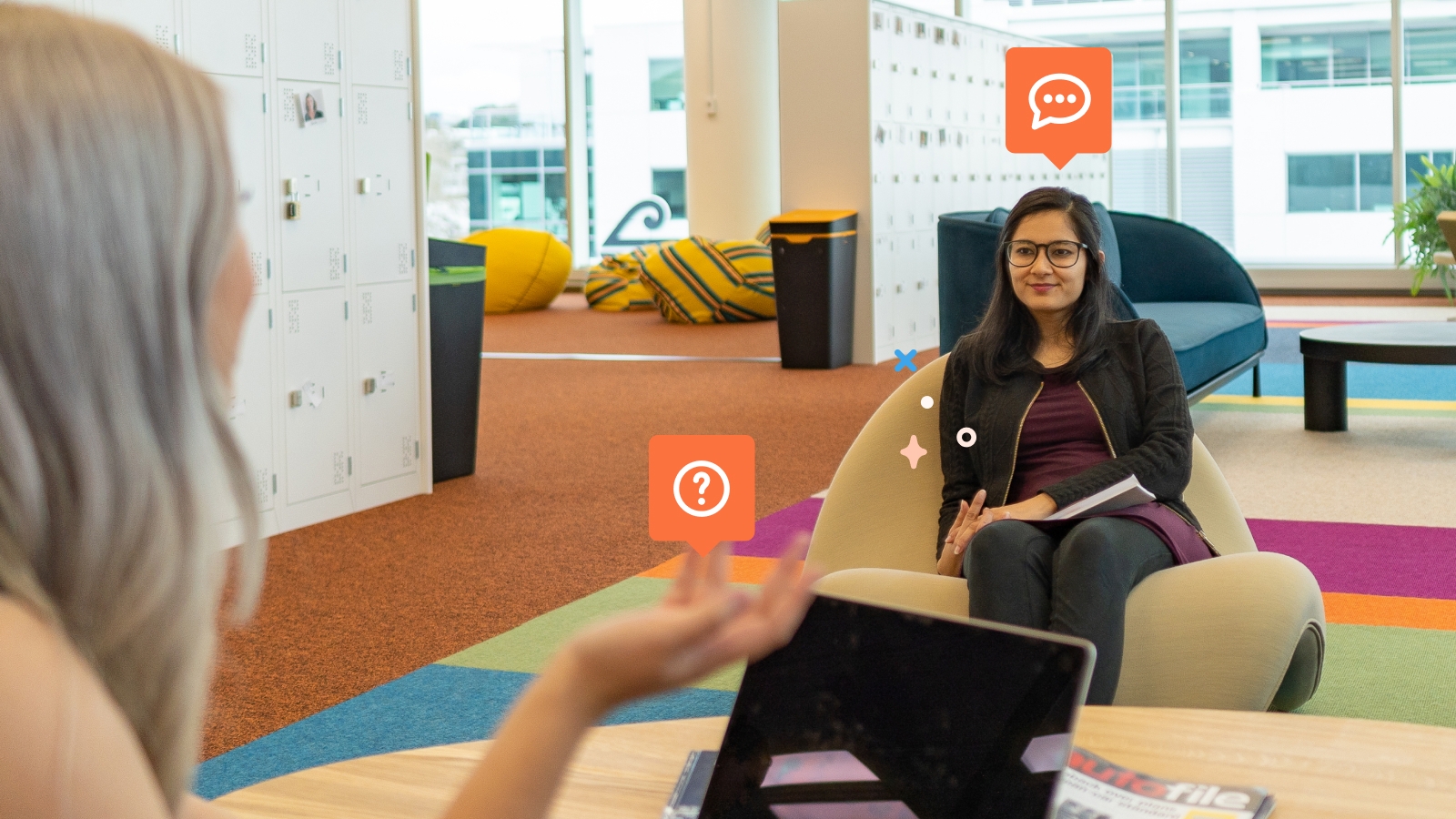Careers advice
Second round job interview: what to expect + common questions
You’re kidding? Another interview? Don’t worry, we’ll get you set up to enter this second stage with confidence.
What you’ll learn:
- The difference between first and second job interviews
- How to get ready for a second job interview
- Common second job interview questions
- Next steps after a second round interview
“Does a second interview mean I got the job?”
A common question, but generally the answer is ‘not yet’. However, you’re getting closer, and it’s definitely a good sign. Ka pai!
In New Zealand, it’s common for employers to ask their preferred candidates from the first round to come back in for another chat. Success at second stage interviews, just like last time, is all about preparation. So we’re here to help with yours
Getting called for a second interview is a great sign for your job hunt!
What are the differences between first and second round job interview questions
In your first job interview, you’ll have likely focussed on your skills and experience and how these relate to the role you’re applying for. By contrast, by the time a second round interview rolls around, the employer will be largely satisfied that, in theory at least, you’re qualified for the job. A second round interview, therefore, is more about the interview panel deciding whether you’ll be a good fit for their company and their teams.
As you’ll see from the section below on common second round interview questions, this means you should expect a good number of behavioural interview questions. These are questions that allow the interviewer to understand how you’d behave or react in certain situations, and therefore what kind of presence you’ll be in the office.
One of the other key differences you should expect from a second round interview is who will be interviewing you. In the first interview, it’s fairly common for a mid-level manager, or a member of the HR team to conduct your interview. By the time of the second round, it’s very likely that the person who’ll interview is the direct manager of the team where the vacancy is. Now that they know that your experience and skills are what the company is looking for, they’ll want to meet you personally, to see if they think you’ll be a good fit.
Getting ready for a second job interview: the steps
1. Think back to the first
Did they chuck in any curveballs that you didn’t answer brilliantly? If so, you probably thought of the perfect response as you walked out of the door – now’s the time to note it down and practice so you can nail it this time.
2. Prepare anything they asked you to bring
Chances are you were notified about your second interview email by phone or email. If they asked for samples of your work, or for you to prepare a task beforehand, make sure it’s ready to go at least the day before the interview.
Reliability is something all employers crave – so it’s a really bad look if you leave this stuff at home.
3. Think about different scenarios
You’ll be told if the second interview is going to have a wildly different format to the first – for example, a group interview or presentation.
If one of these scenarios is on the cards for you, think about tactics. How will you need to alter your body language if you’re presenting to a group of senior employees? If you’re taking part in a group interview, would you take on management in a task, or volunteer for one of the tough, hands-on roles?
4. Research your interviewers
Every company is different, but you might see at least one if not two new interviewers in your second round.
It’s likely that when you were invited back, you were given the name(s) of who will be asking the questions. They’ll probably be more senior than your last interviewers, so check out the company website to find out as much as you can.
Sometimes these pages will be a gold mine of info you can use to your advantage. If both you and they have a love of competitive dog grooming or snail racing, there’s your route to building a connection.
Of course, if you’re faced with the same interviewers as last time, think about what they responded well to, and repeat.
5. Remember you’re always being scrutinised
It’s common during second interviews in NZ for candidates to have a tour and meet their prospective team mates. Sometimes this could even involve having lunch with them.
While you want these people to think you’re fun to be around, remember your interviewer will ask them for their impressions of you later on. So don’t totally let loose.
There's a chance you'll meet the rest of the team during a second interview
6. Hammer home your success stories
This is your last chance to show the interviewer why they should pick you over the other candidates – so bring out your A game.
Remember the STAR (situation, task, action, result) method, and provide real life examples of how you brought home the bacon in your previous roles. Facts and figures are your friends here.
7. Have some solid questions to ask
If you have some unasked questions left over from round one, now’s your chance to get them in. However, we recommend having at least three to five, just in case the interviewer answers them as you go along.
Good questions to ask in a second stage interview include more specific queries around the day-to-day realities of the role, and what you should expect from your first weeks with the company.
8. Be ready to discuss next steps
At the end, the interviewer will probably tell you about what happens next. If you’re successful, this will likely be the company getting in touch with your references. However, it’s not unheard of for companies to do a third interview, or further tests.
Common second job interview questions
It’s likely you’ll be asked some of the same questions again in your second stage interview. If this happens, do not:
- Tell them you’ve already answered it.
- Give a shortened version of your best answer.
In other words, treat every question like it’s new and keep the energy high throughout the interview.
Prepare answers for:
Questions about your past roles:
- ‘What was your biggest challenge in your last role?’
- ‘What was your biggest achievement in your last role?’
- ‘Tell me about a time you showed good decision making skills.’
- ‘Tell me about a process you improved in your last role.’
Questions about the role you’re applying for:
- ‘Why are you interested in this role’?
- ‘What can we expect from you in the first 90 days in the role?’
- ‘Why are you the best candidate for this role?’
- ‘What do you think you’ll find most challenging about this role?’
- ‘What do you know about our culture and values?’
Questions about your ambitions
- ‘Where do you see yourself in five years time?’
- ‘How would this role help you progress towards your goals?’
Practical questions
- ‘If you’re successful, when could you start?’
- ‘Remind me of your salary expectations.’
What happens after a second round job interview?
Generally, there are two things that could happen at the end of your second job interview. The most likely is that the person who’s interviewed you will let you know what the next steps will be. This could be anything from providing a rough time frame of when to expect to hear whether you’ve been successful, to inviting you for a third interview (it’s not common, but it does happen).
Alternatively, they could offer you the job on the spot. In this case, it’s likely that they were pretty confident you were the right person going into the second interview, and they just wanted to iron out a few details with you.
In the first scenario, you might expect to wait a week, or even two to hear whether you’ve been successful, though this varies from organisation to organisation, and hire to hire. We highly recommend being patient and waiting for the organisation to contact you, rather than the other way around, as it’s not a good look to be pestering them for a decision. That said, if the company has gone over the timeframe they mentioned they’d be in touch by, you could send a very polite email asking when you might expect to hear.Other articles you might like



